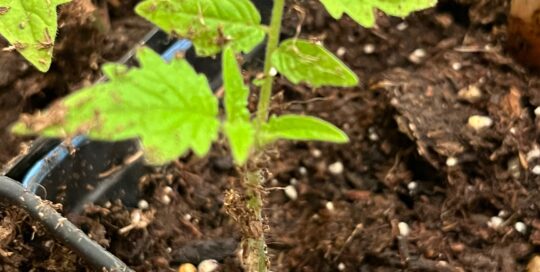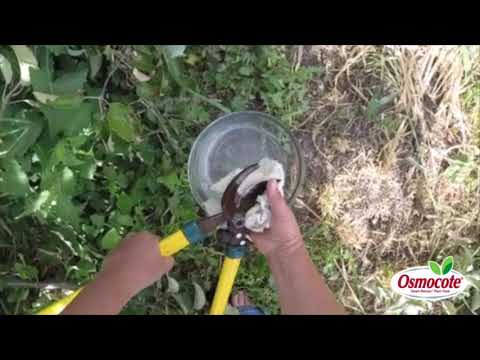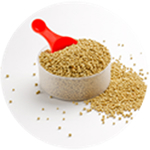Grab Vinegar to Eliminate Weeds
Views: 496
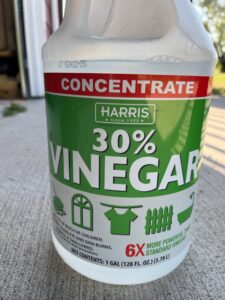
Argh! Weeds are growing rapidly and the temptation to grab the weed killer spray bottle is strong. That is, until I bought a gallon of 30% vinegar at Home Depot. But does vinegar really work as a weed killer?
This Isn’t Your Grandmother’s Vinegar
The vinegar we use in the kitchen is typically a 5% concentration of acetic acid. While this is adequate to can foods safely, or to use in every day cooking, it is not strong enough to kill weeds. Look for something more potent in the garden, such as vinegar with at least a 25% acetic acid concentration.
With that said, the other aspect to note is because of this higher concentration of acetic acid in the vinegar, it can burn your hands. It’s also recommended that you wear personal protective gear, such as long sleeves, gloves, and ey protection. And do not breathe in any of the spray. Just because it is natural does not mean it is harmless.
How Does Vinegar Act as a Weed Killer
Vinegar is affective as a weed killer because it disrupts the cell membranes in the plant, causing it to fail to function, and ultimately dry out and die. But it’s important to note that it only affects the foliage. Unlike chemical herbicides, it does not enter the roots and kill the plant at that level. That is why it sometimes requires multiple applications to completely eliminate a plant or group of plants.
The Best Way to Apply Vinegar
As with pretty much anytime you are using an herbicide, choose a calm day for the application. You can pour the vinegar in a spray bottle and saturate whatever you wish to eliminate. Keep in mind that vinegar is non-specific on what it kills. If there is any overspray on a desirable plant, it will most likely perish, or at least be harmed, as well. Set up a barrier of cardboard to protect surrounding plants if it’s a concern.
Vinegar reportedly works better on broadleaf plants, but from my own experience, when you use enough, it kills grass very well in walkways. I love the stone paths in my garden, but I am always battling intrusive grass. It killed it thoroughly enough to allow me to dig it out from between the cracks. Otherwise, it was practically impossible.
Follow Up Applications
Don’t be surprised if you notice new growth within a week or two, particularly on a tenacious species. Just spritz it again! Usually it only takes one additional application to knock back the plant, but if it requires more, just keep after it. Vinegar really is effective, just not as fast, and the nice part is, it doesn’t have the persistent chemicals that remain in the soil.
Creating a More Potent Weed Killer
There are also recipes for natural weed killers that include a combination of vinegar, salt, and dish soap. Of course, the vinegar works because of the disruption of the cell membrane. The salt further dries out the plant cells. And the dish soap acts as a certificate that removes the protective barrier of the leaves, and allows the vinegar and salt to work more effectively. The general ratio is one-half gallon of vinegar to one-half cup of salt (this could be kosher or iodized, it doesn’t matter) and a half tablespoon of dish soap. Put this in a spray bottle to have on hand whenever you need to eliminate a new patch of weeds.
It’s very good to have an option to eliminate tenacious weeds without having to resort to chemicals. Keep this higher concentration of acetic acid on hand to stay on top of the weed situation in your garden.
Meet Amy Grisak
Amy is a freelance author and photographer in Great Falls, MT who specializes in gardening, foods, and sustainable agriculture. She provides information on every kind…
Amy's Recent Posts
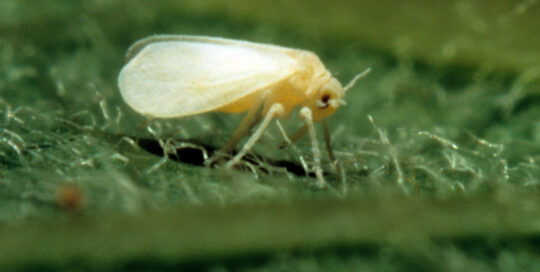
Watch Out for Silverleaf Whiteflies
